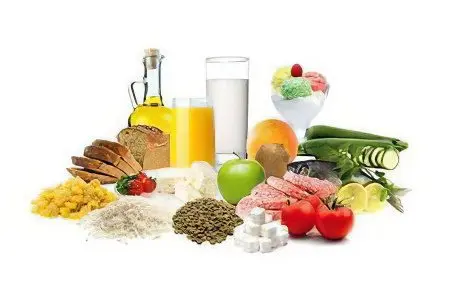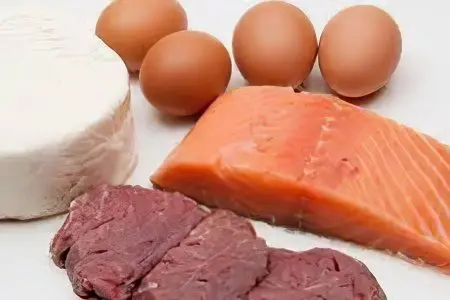Contents
The number of people diagnosed with liver disease is increasing every year. Violations in the work of this important organ can be caused by various factors: malnutrition, infections, poor heredity, medication for other diseases, etc. For this category of patients, it is very important to follow a special diet that will contribute to a speedy recovery.
What can you eat with liver disease?
Currently, modern medicine has significantly expanded the list of foods that can be eaten daily by people with various liver diseases. Despite this, it is important for such patients not to overload this organ in order to avoid possible complications. The amount of fat during the course of treatment for patients should be severely limited.
The diet for liver diseases must include the following elements:

Carbohydrates;
Easily digestible proteins;
Vitamins;
Minerals.
For liver diseases, patients are allowed various products:
Cereals in the form of cereals (not very boiled);
Pasta should be consumed in limited quantities;
Dairy and sour-milk products (low-fat cottage cheese, low-fat sour cream, fermented baked milk, milk, kefir, curdled milk, etc.);
Lean types of meat (veal, beef, turkey, chicken, rabbit, etc.);
River and sea fish;
Eggs, in the form of an omelet or as part of other dishes (chicken and quail);
Vegetables and greens (you should limit the amount of legumes and those vegetables that contain coarse fiber);
Fruit (do not eat pear);
Honey (is an excellent substitute for sugar, but should be consumed in limited quantities), etc.
Cooked dishes should be seasoned with vegetable oils:
Olive;
Sunflower;
corn;
Pumpkin;
Linen.
When preparing first courses, patients with liver disease should use either pure water or vegetable broth. At the same time, one should not forget about milk soups, which are very easy to digest and keep the patient feeling full for a long time.
Despite the fact that during treatment, patients should limit the amount of sugar, gastroenterologists allow them some sweets:
Mousses (boiled from berries or fruits);
Marshmallow;
Lozenge;
Souffle;
Jelly;
Marmalade;
Jam;
Oat cookies.
During the passage of any course of treatment, it is important for patients to maintain normal water balance in the body.
For liver diseases, the following drinks should be preferred:
Compote from berries and dried fruits;
Weak tea;
Kissels cooked from berries;
Natural vegetable and fruit juices;
Pure water.
People with liver disease should prepare food as follows:
Boil;
Cook for a couple;
Bake in the oven;
Consume sour and raw.
Why is it good to drink coffee?
The British Liver Trust report (published June 2016) “Coffee and the Liver – Potential Health Benefits” confirms that coffee is good for liver health. For the first time, all current research and evidence has been analyzed and compiled into a single report.
The report provides evidence that:
Drinking moderate amounts of coffee regularly may prevent liver cancer – the WHO recently confirmed this risk reduction after a review of more than 1000 human studies.
Coffee also reduces the risk of other liver diseases, including fibrosis (scar tissue that builds up in the liver) and cirrhosis. When your body digests caffeine, it releases a chemical called paraxanthine, which slows down the growth of scar tissue involved in fibrosis.
Drinking coffee may slow the progression of liver disease in some patients. For example, the acids in coffee can counteract the hepatitis B virus. One study found that even decaffeinated (instant) coffee can have the same benefit.
Beneficial effects have been found in the preparation of filtered, instant and freshly brewed coffee.
You can read the full report here: Coffee Consumption and Liver Potential Health Benefits.
In November 2017, the Institute for Scientific Information for Coffee’s report “Caring for the Liver: Coffee, Caffeine, and Lifestyle Factors” provided additional information on the potential role of coffee consumption in reducing the risk of liver diseases such as cancer and cirrhosis.
What can not be eaten with liver disease?

In case of problems with the liver, it is strictly forbidden to eat smoked, spicy, fatty and fried foods that can provoke an exacerbation of the disease.
Gastroenterologists forbid their patients during the course of treatment to use the following products:
Mushrooms;
Fatty meats (pork, lamb, etc.);
Some varieties of poultry (it is especially not recommended to eat the meat of waterfowl – ducks, geese, etc.);
Fat;
Broths (mushroom and meat);
Cheeses, especially fatty varieties;
Fatty cottage cheese;
Butter, lard, margarine and cooking oil;
Fatty fish;
Canned food (fish, meat, etc.);
Smoked products (sausages, sausages, sausages, balyks, loins, etc.);
Seasonings (pepper, vinegar, mustard, etc.);
Some vegetables and herbs (radish, sorrel, radish, green and onion, garlic);
Fresh pastries, as well as rye bread;
Ice cream;
Candy and chocolate;
Any confectionery products, which include fatty creams;
Alcohol and alcoholic drinks;
Sweet and carbonated drinks;
Strong tea;
acidic fruit juices;
Cocoa;
Nuts.
Bread (for some diseases, it is allowed to use stale or oven-dried white bread);
[Video] Dr. Berg – 7 Ingredients That Destroy Your Liver:









